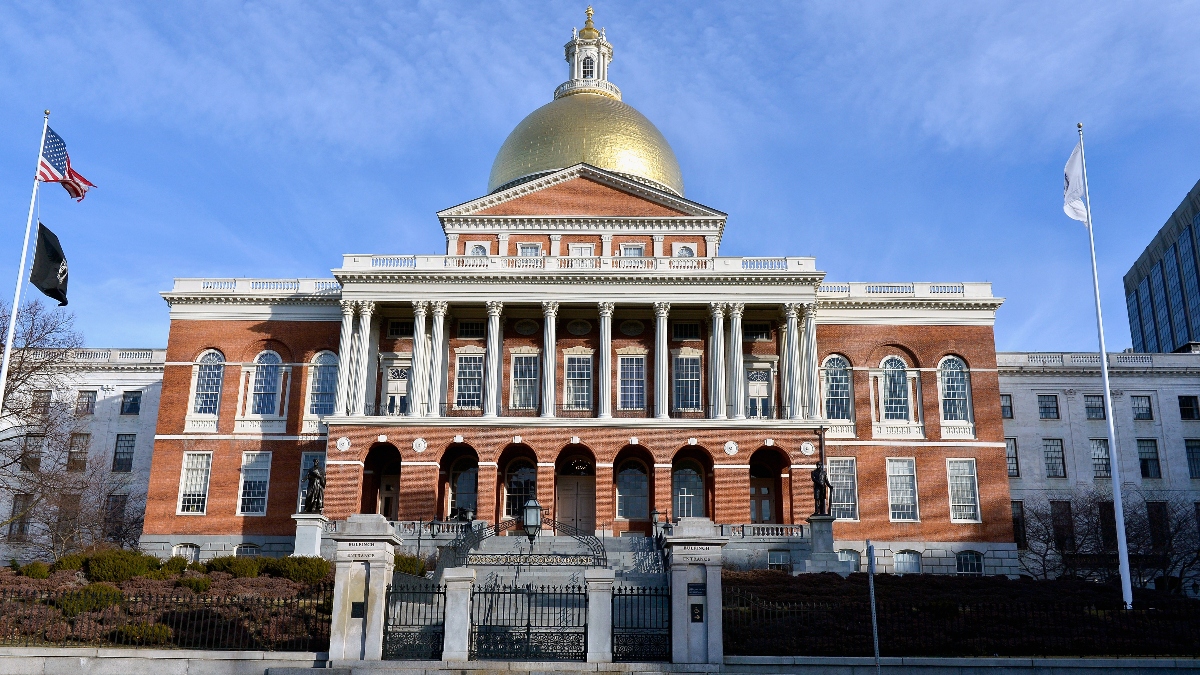Massachusetts sports betting is all but dead in 2020 after lawmakers failed to include a legalization provision in their 2021 budget. Despite months of negotiations and bipartisan support, lawmakers will seemingly have to start sports betting deliberations over again when a new session begins in 2021.
Republican Senate Minority leader Bruce Tarr’s retail and mobile sports betting proposal was rejected during budget negotiations earlier this week. Co-sponsored by Minority Whip Patrick O’Connor and Assistant Minority Leader Ryan Fattman as well as Democratic Senators Diana DiZoglio and Nick Collins, the amendment was passed over without even a roll call vote.
A bicameral group of lawmakers still have to rectify discrepancies between the Senate budget passed this week and the House budget passed earlier this year, but it seems improbable they would include sports wagering provisions after both chambers excluded legal wagering from their respective proposals.
A separate economic development bill under consideration could be a vehicle for legal sports betting but that also seems like a long shot this year. Lawmakers could, in theory, take up a separate stand-alone sports betting effort but that seems highly unlikely as the calendar year winds down.
Legal sports betting’s seemingly inevitable death comes despite backing from Republican Gov. Charlie Baker and many members of the Democratic-controlled General Court. Massachusetts has an affluent, tech-savvy population and some of the nation’s most iconic sports franchises, setting up what industry stakeholders believe could be one of the nation’s most lucrative per capita markets.
Despite months of lobbying from inside and outside the legislature, it appears Massachusetts will go another calendar year without legal sports betting.
Operator Participation A Key Division
Elected officials largely support legal sports wagering in Massachusetts, especially after the commonwealth opened its first two full-scale resort casinos in recent years. However, politicians and the state’s gaming stakeholders are divided over the scale and scope of potential legal sports betting.
The two casinos, MGM Springfield and Encore Boston Harbor, plus Penn National’s Plainridge Park Casino, would be able to open digital and retail sportsbooks under any plausible sports betting legalization bill, but the casinos are looking to limit outside competition.
According to Mass Live, the trio reportedly asked lawmakers last month to give them primary control over sports betting rights, arguing investments in their respective brick-and-mortar facilities and communities would be undercut by outside, mobile-only operators. That group would okay legislation that allows licenses for themselves as well as certain Massachusetts-based operators, which would allow Boston-headquartered DraftKings to enter the market as well.
The most recent Senate proposal would allow the aforementioned brick-and-mortar establishments the rights to retail sportsbooks and three digital licenses or “skins,” but also market access for five additional online operators. Industry observers, as well as operators without Massachusetts retail properties, have pushed for an open, competitive market, arguing it helps customers and cuts down on offshore sportsbook participation.
The divide between market access has remained a key sticking point during deliberations and will remain a potential obstacle as lawmakers consider sports betting going forward.
College Betting Still Controversial
College wagering has also been a point of contention.
Officials from Boston College, Harvard, Boston University and several other Massachusetts universities wrote a letter to lawmakers asking them to keep college betting from any legislation. The university representatives argued it would create an unnecessary risk for student-athletes.
Industry officials have refuted this claim, showing that a regulated, legal market is the best way to protect college athletes, especially since billions of dollars are already wagered illegally on NCAA basketball and football games each year. The American Gaming Association followed the university presidents’ letter with comments of their own, asking lawmakers to include college wagering access — and protections — in their proposals.
Many in Massachusetts still remember the Boston College point-shaving incident of the late 1970s, one of the most notorious organized criminal gambling scandals in U.S. sports history. Though most of the roughly two-dozen states with legal wagering permit betting on in-state and out-of-state collegiate programs, the idea is still controversial in Massachusetts.
The Senate sports betting proposal rejected this week would have allowed wagering on Division I college programs, which would include Boston College and UMass football and men’s basketball as well as Harvard and Boston University basketball, among other programs. This could be a starting point for further deliberations, but collegiate betting faces headwinds in Massachusetts that it hasn't faced in other states.
Other New England States
In the meantime, Massachusetts residents can bet on sports legally in two neighboring states.
Rhode Island was one of the first states with legal wagering. Its two casinos, the Bally’s-owned Twin River casinos in Tiverton and Lincoln, have William Hill sportsbooks. Eligible bettors can also bet with William Hill’s Rhode Island sports betting app from anywhere within state lines.
Eligible bettors within New Hampshire state lines can also wager legally through DraftKings, the sole legal mobile sportsbook in the state. New Hampshire also has a handful of retail sportsbooks that have opened or are scheduled to do so in coming years.
The other three New England states have also all considered sports betting bills.
Maine’s legislature technically legalized sports betting in 2019, but it was vetoed by Gov. Janet Mills. Sports betting backers in Augusta may introduce a new bill in 2021.
Connecticut, home to the region’s two largest casinos, has pursued sports betting since 2018, but the complex dynamics between the tribes operating the two casinos and commercial interests looking to enter the market have stalled negotiations despite widespread, bipartisan support.
Vermont, with no legal gaming establishments, is also slowly advancing a study bill to consider online wagering in the state.
Assuming Massachusetts sports betting efforts falter again this year, the Bay State could find itself among a dwindling list of New England states without legal wagering options.




















































